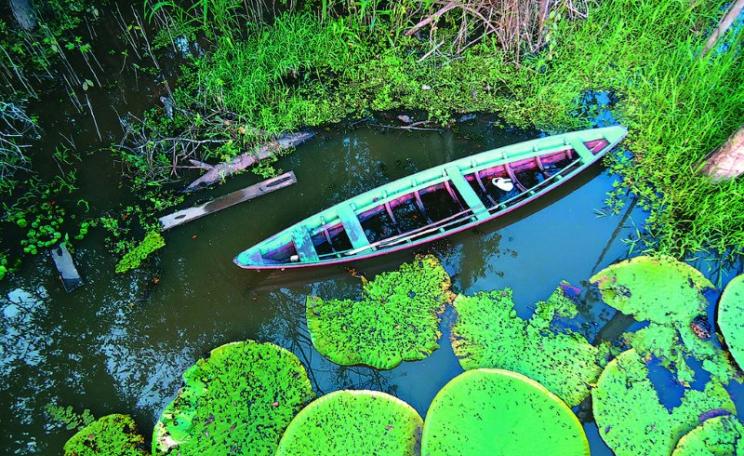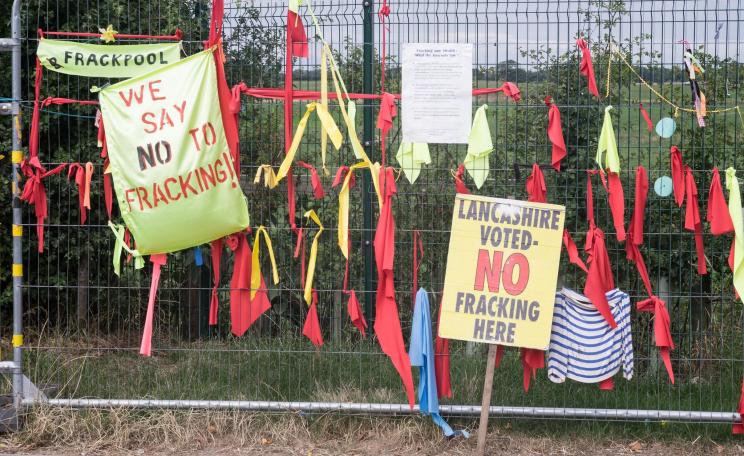Despite a regime ban on protest, the camp became a clarion call to a growing youth movement. Students made the journey from the capital Phnom Penh to support a motley mixture of monks, indigenous locals, and ex-loggers.
"I am arrested and ready to be deported now - Alex." The text message came from Mother Nature Cambodia founder Alex Gonzalez-Davidson.
An hour later his last message on Cambodian soil encapsulated the mission for which he has become known: "Message to youth and Cambodian nature lovers, stay strong, the battle is yours to be won. For Nature. Our Life."
As his flight took off at 9.30pm protests by his supporters continued outside the airport under a frenzied media glare. He texted again: "The reason they are trying to deport me is that they regard me as a fish bone in their throat, due to the activism in the Areng valley."
The Areng valley in the Cardamom Mountain forests is at the heart of one of Cambodia's last great forests, home to 30 endangered species and a 2,000-strong Chong indigenous community. Over the last 20 years 84% of the country's primary forest has been lost to logging, plantations and other developments.
But a massive 10,000 hectares of the valley are slated to be flooded by a hydro-electric dam - one that makes no commercial sense, and appears to be a triumph of corruption over wise governance, as it opens up timber and minerals for exploitation, and parcels out lucrative construction contracts.
Police officers had detained Alex and San Mala, a Khmer Mother Nature activist, at a cafe in central Phnom Penh around 1pm. His arrest came days after his visa had expired on 20 February. The Ministry of the Interior had asked him to leave voluntarily and re-apply, but sensing that it would not be renewed, Alex decided to overstay his visa.
Deportation of foreign NGO activists is highly unusual in Cambodia. The last similar case was in 2005 International NGO Global Witness provoked the government with a critical report and staff were denied visas.
If words could kill ...
For over a week the issue dominated the headlines, dragging senior political figures into the discussion. The opposition Cambodia National Rescue Party sided with Alex demanding of the Government and even the King that he stay, but it was not to be. Nalry Pilorge, director of prominent rights group LICADHO said:
"The government's decision to deny Mr Gonzalez-Davidson a visa renewal is a perfect example of the government's sustained attempt to quash grassroots advocacy, silence dissent and ensure an environment where the government can operate with immunity from independent criticism."
Prime Minister Hun Sen responded in aggressive tone following the deportation. "If you want to make an autonomous zone" in the Areng Valley, he threatened, "please come, and we will put BM21 [multiple rocket launcher vehicles] in that area."
However under pressure his threatening remarks were followed by what appeared to be a significant climb down delaying the project: "Stop talking about Areng. Let's study it thoroughly. And I have come up with an idea that no matter whether the study is clear or not, there will be no construction from now on until 2018."
Despite a regime ban on protest, the camp became a clarion call to a growing youth movement. Students made the journey from the capital Phnom Penh to support a motley mixture of monks, indigenous locals, and ex-loggers.
Within the week 180 activists had travelled to the Areng Valley in solidarity with the local people and in defiance of Alex's deportation.
The Government was also at work in the area sending a heavily armed parliamentary delegation to intimidate the residents. A Mother Nature observer had his camera phone snatched by guards for attempting to record the meeting.
Mr Vaen Vorn, a prominent local activist from the Areng valley, was also summoned to court charged with supplying timber without a permit to Mother Nature for an eco-centre. The charge was viewed by observers as another attempt to silence opposition to the project.
Protest camp in Cambodia's last great jungle hits a raw nerve
How did Alex, who had been living and working in Cambodia for 12 years, reach such notoriety?
In March 2014 Alex and a band of Khmer followers set up a protest camp in the middle of the thickest jungle in Cambodia. Their mission - to block Chinese dam builders from entering the remote Areng Valley - one of the last refuges for endangered wildlife and settled by Indigenous Chong People.
Despite a regime ban on protest, the camp became a clarion call to a growing youth movement. Students made the journey from the capital Phnom Penh to support a motley mixture of monks, indigenous locals, and ex-loggers who had joined Alex at the jungle camp.
I visited in the rainy season to find this committed bunch sleeping in hammocks as the incessant rains flooded tents turning the place into a quagmire.
Five times Chinese surveyors and dam builders were surrounded in their vehicles and sent packing. Then last September the police arrived with military support, broke up the camp and arrested Alex and eleven others when they again blocked the road. They were released only after agreeing to sign onerous commitments to cease their activities.
Though not naming Alex explicitly the threat of deportation came soon after. An article in the Phnom Penh Post of 12th December 2014 quoted Government minister Chheang Vun, who threatened the leader of Alex's group Mother Nature with deportation:
"If I find that he did anything against what he pledged to the Ministry of Interior, I will request that the Immigration Department at the ministry arrest him and send him back to his home country."
After years beneath the radar, Alex steps into the open
Of mixed Anglo-Spanish parentage, Alex speaks English with a Geordie accent alluding to earlier years living with his Mother near Newcastle. Originally from Catalonia, he made Cambodia his home and worked with the International Red Cross and a number of private companies as a translator.
Alex's fluent mastery of the Khmer language enabled him to engage intimately with Khmer communities struggling against ongoing exploitation under the regime of Prime Minister Hun Sen, who has brutally suppressed all opposition in the country during his 30-year rule.
Mother Nature activist Somnang Sim said of him: "Alex is a foreigner but he can speak Khmer, so many people respect him."
I got to know Gonzalez-Davidson in 2012 while making a documentary 'Defenders of the Spirit Forest'. In the early days, though usually busy organising activities, he was careful not to stand in front of the camera, preferring to take a low-profile approach, mindful of the consequences of being seen to be speaking out against the regime he calls a "criminal cartel".
That all changed as he became increasingly immersed in a campaign to save The Areng Valley, growing increasingly frustrated with the ineffective approach of conservation NGOs in the Areng Valley such as Flora and Fauna International and Conservation International.
Working in formal partnerships with the regime, they have said little in public against destructive projects like the dam, for fear of losing their permission to operate in the country.
Social media successes rankle corrupt politicians
Styling his own brand of activism based on non-violent direct action and creative use of social-media, Alex founded the group Mother Nature in October 2013.
His short quirky videos which poke fun at the "monkeys in power" have become a hit with Khmers - each one quickly going viral on Facebook. In a country where television is tightly controlled by the state, it is the internet where much social debate happens.
He especially appeals to a youth population yearning for the political freedoms they read about on their smart phones daily. By fronting up to the regime Alex has become a symbol of their hopes and aspirations. Now he has a following of activists increasingly prepared to challenge decisions made by corrupt politicians, and stand up to laws enforced by crooked judges.
Hun Sen narrowly retained power in the July 2013 elections but opposition claims that the results were rigged were accompanied by protests. Hun Sen responded in characteristic fashion with bloody crackdowns, and people were killed. This was followed up with a ban on all protest in January 2014.
Throughout this period Alex and his allies continued to mount protests in the capital, most of which were swamped with police from the start. One featuring students wearing animal costumes on bicycles attracted more police than protesters and didn't even manage to begin cycling. Still the symbolism that it presented set social-media alight.
Cambodia's conservation jewel in peril
A report by the Japanese International Cooperation Agency for the Cambodian government concludes that the £200 million price tag will result in a high cost of electricity per unit compared with other dams, for the modest 108 megawatt output it would provide.
But while the Government maintains that feasibility studies have yet to be done, Mother Nature has gathered substantial evidence indicating that the dam has been approved behind closed doors and therefore views these feasibility studies as just an excuse to commence construction.
"We have been really effective at exposing this white elephant project", said Alex. "It is just an excuse for further corruption from logging and mining."
The proposed hydroelectric-dam project is led by Chinese dam building giant Sinohydro with help from its powerful local partner Pheapimex, led by ruling party Senator Lao Meng King. Pheapimex is infamous for its high profile land-conflicts.
In a public letter, Prime Minister Hun Sen said the dam has not been approved and a decision is pending based on the results of an Environmental Impact Assessment yet to be conducted.
Alex disputes the letter's claims that the dam will provide positive benefits such as creating energy, jobs and the development of ecotourism: "The letter in itself is so biased towards construction that it is further indication of our belief that the dam has been approved."
A further indication that the project has approval is that Sinohydro Resources recently registered a wholly owned Cambodian subsidiary specifically for this hydro project: Cambodia Cheay Areng electricity company Ltd.
Now blacklisted from entering Cambodia, Alex said prior to his explusion: "I am really proud of what we have achieved so far, and I truly believe that the movement we have created, will only serve to accelerate the unstoppable growth of the movement in future."
Rod Harbinson is an environmental journalist, filmmaker and campaigner.
Watch 'Defenders of the Spirit Forest', a 25 minute documentary on the Cardamom Mountain forests by Rod Harbinson at: www.spiritforest.org
Sign the petition by Rainforest Rescue to Save the Areng Valley.
Support the campaign to save the Areng valley with Cambodian Campaign group Mother Nature.







